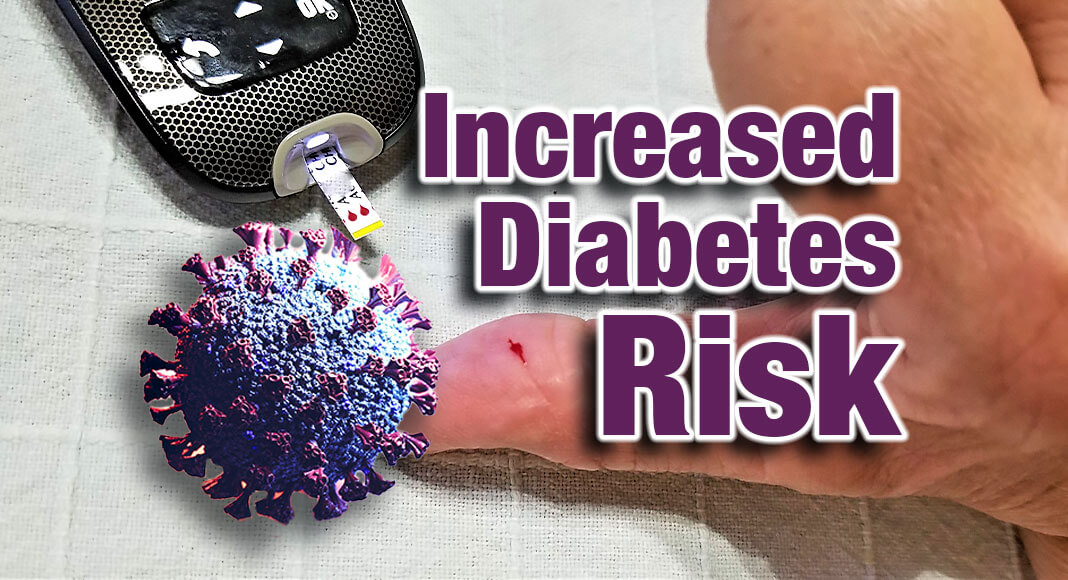
Mega Doctor News
By Cedars-Sinai
Newswise — LOS ANGELES – Investigators in the Smidt Heart Institute at Cedars-Sinai have confirmed that people who have had COVID-19 have an increased risk for new-onset diabetes—the most significant contributor to cardiovascular disease.
“Our results validate early findings revealing a risk of developing Type 2 diabetes after a COVID-19 infection and indicate that this risk has, unfortunately, persisted through the Omicron era,” said Alan Kwan, MD, first and corresponding author of the study and a cardiovascular physician in the Smidt Heart Institute at Cedars-Sinai.
The trend, Kwan says, is concerning because most people in the United States will eventually experience a COVID-19 infection. “This research study helps us understand—and better prepare for—the post-COVID-19 era of cardiovascular risk,” Kwan said.
The findings, published today in the journal JAMA Network Open, also suggest that the risk of Type 2 diabetes appears lower in individuals who were already vaccinated against COVID-19 by the time they were infected.
To determine the rising rates of diabetes, investigators evaluated medical records from 23,709 adult patients who had at least one documented COVID-19 infection and were treated within the Cedars-Sinai Health System in Los Angeles from 2020-2022. The average patient was 47 years old, and 54% of subjects were female.
Within the study time frame:
- The combined risk of Type 2 diabetes after COVID-19 exposure—accounting for both vaccinated and unvaccinated patients—was 2.1%, with 70% occurring after COVID-19 infection versus 30% happening prior to COVID-19 exposure.
- The risk of Type 2 diabetes after COVID-19 exposure for unvaccinated patients was 2.7%, with 74% occurring after COVID-19 infection versus 26% happening prior to COVID-19 exposure.
- The risk of Type 2 diabetes after COVID-19 exposure for vaccinated patients was 1.0%, with 51% occurring after COVID-19 infection versus 49% happening prior to COVID-19 exposure.
“These results suggest that COVID-19 vaccination prior to infection may provide a protective effect against diabetes risk,” said Kwan. “Although further studies are needed to validate this hypothesis, we remain steadfast in our belief that COVID-19 vaccination remains an important tool in protecting against COVID-19 and the still-uncertain risks that people may experience during the post-infection period.”
Susan Cheng, MD, MPH, senior author of the study, professor of Cardiology, and director for Cardiovascular Population Sciences in the Smidt Heart Institute, says these findings broaden the medical field’s understanding of the effects of COVID-19 on the body, while simultaneously unearthing yet-to-be-answered questions.
“Although we don’t yet know for certain, the trends and patterns that we see in the data suggest that COVID-19 infection could be acting in certain settings like a disease accelerator, amplifying risk for a diagnosis that individuals might have otherwise received later in life,” said Cheng, the Erika J. Glazer Chair in Women’s Cardiovascular Health and Population Science. “So, it could be that instead of being diagnosed with diabetes by age 65, a person with preexisting risk for diabetes might—after a COVID-19 infection—be more likely to develop diabetes by age 45 or 55.”
Diabetes disrupts normal metabolism and metabolic processes, preventing the pancreas from producing enough insulin, a hormone that helps regulate blood levels of glucose and amino acids. Because diabetes can damage vital organs and blood vessels, people with diabetes are at higher risk for heart attack and stroke.
The disease affects an estimated 26 million people in the United States.
This research, Kwan says, is one piece of the puzzle that will help researchers understand how to prevent metabolic as well as cardiovascular disease risk in the future.
“As we learn how to live with COVID-19, we also have to be prepared to recognize and treat the various conditions linked to its aftereffects,” said Kwan. “Our ultimate goal—with every research study we conduct—is to find ways to keep people healthy and able to engage in their everyday activities and lives.”









